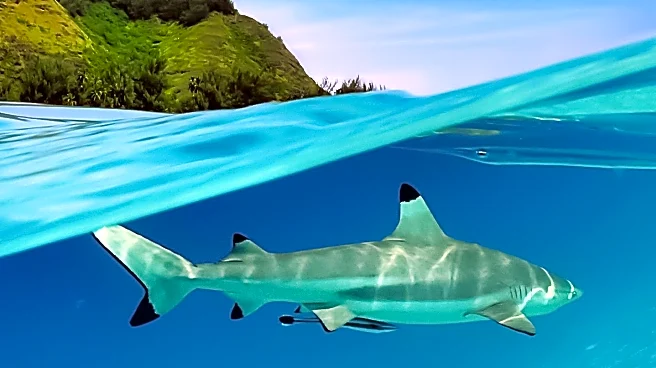What's Happening?
A swimmer attempting a long-distance swim from Catalina Island to the mainland was injured after being bitten by a shark. The incident occurred as the swimmer was making progress on the challenging route, which is known for its demanding conditions and marine life. The swimmer's condition following the attack has not been detailed, but such incidents highlight the risks associated with open-water swimming in areas inhabited by sharks.
Why It's Important?
This incident underscores the inherent dangers of open-water swimming, particularly in regions known for shark activity. It raises concerns about safety measures and the need for increased awareness among swimmers and organizers of such events. The attack could impact local tourism and recreational activities, as potential swimmers and tourists may reconsider their plans due to safety concerns. Additionally, it may prompt discussions on the balance between human recreational activities and marine wildlife conservation.
What's Next?
In response to the incident, local authorities and event organizers may review safety protocols and consider implementing additional measures to protect swimmers. This could include increased monitoring of shark activity, enhanced emergency response plans, and public awareness campaigns about the risks of swimming in shark-inhabited waters. The incident may also lead to discussions on the need for better education on marine life interactions for those engaging in open-water activities.
Beyond the Headlines
The shark bite incident may also contribute to broader discussions on human interactions with marine ecosystems. It highlights the need for sustainable practices that respect marine life while allowing for human recreational activities. The event could serve as a catalyst for increased research into shark behavior and the development of technologies to prevent shark attacks, balancing ecological preservation with human safety.










